15 Jan 2024
The Shifting Sands of London’s Ghost Signs Landscape
When we researched and wrote Ghost Signs: A London Story, we included two locations that we knew were under imminent threat: the Gillette palimpsest in Holborn, and the Albion House Clothing Company on Borough High Street (featured on my Bankside Ghostsigns Walk).
There were then a handful of former ghost signs used to illustrate how they are lost and destroyed. The bulk of the book’s content is ghost signs that were visible at the time of publication, which we felt important to aid its currency and utility.
However, nothing stays the same, and recently there has been a spate of noteworthy changes. These are documented on the book’s companion map, but I wanted to share them here on the blog, including a somewhat wild story in South Woodford…
Germolene, Newington Green
As documented by StockCarPete on Flickr, this is a straightforward case of building maintenance taking place, with the sign being rendered over and likely lost for good. Admittedly, it wasn’t in great shape to begin with and so the owners were likely uninterested in exploring other options, assuming they were aware of it in the first place.
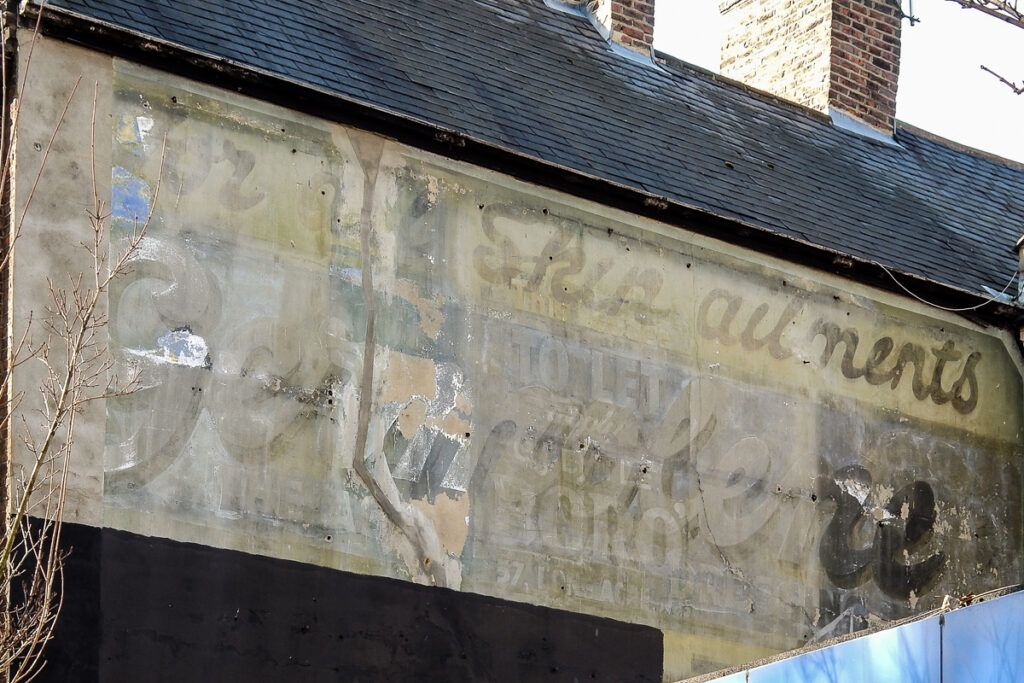
The sign is one of those that had traces of advertising for the billposting firm, Boro, which the entry in our book references. This leaves London’s last surviving Germolene ghost sign as the one on Wandsworth Road, SW8.
Stamford Trading Co.
This is another one that has succumbed to property development, resulting in the loss of one of London’s widest ghost signs. Although the premises have their address on Kingsland Road, E8, the sign itself is on the back of the building, previously visible from Geffrye Street and Overground trains travelling between Hoxton and Haggerston stations. Once again, StockCarPete has documented the before and after on Flickr.
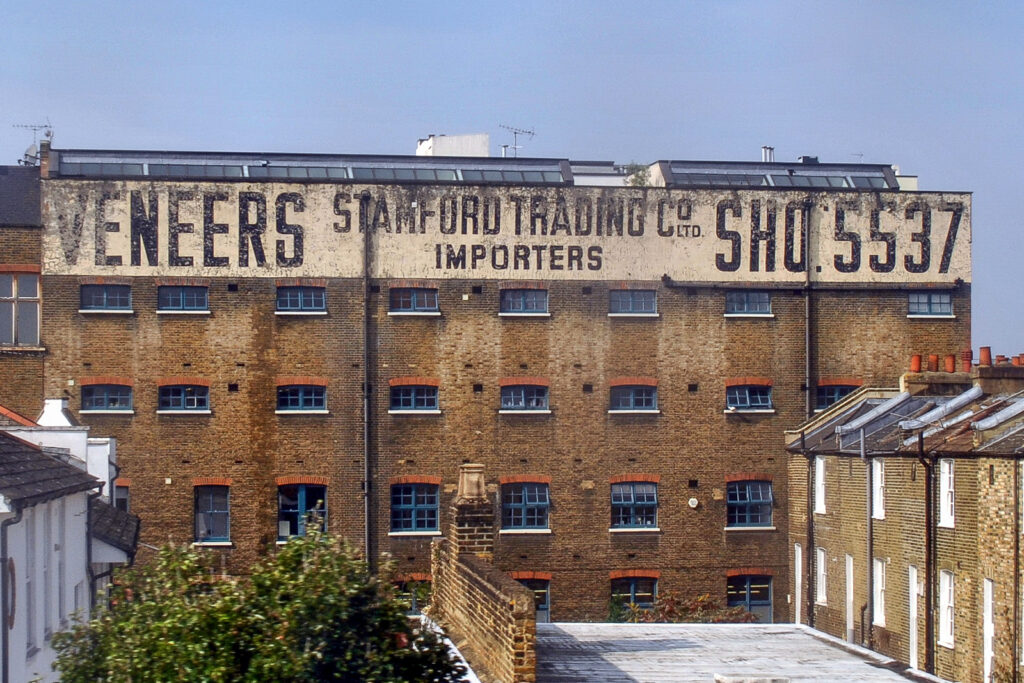
I recall this one being particularly tricky to research, but one of the things we did find was a series of late 1940s advertisements that the company ran. This seems as good a time as any to share them, and if anyone can add No.3 to the set then do let me know…
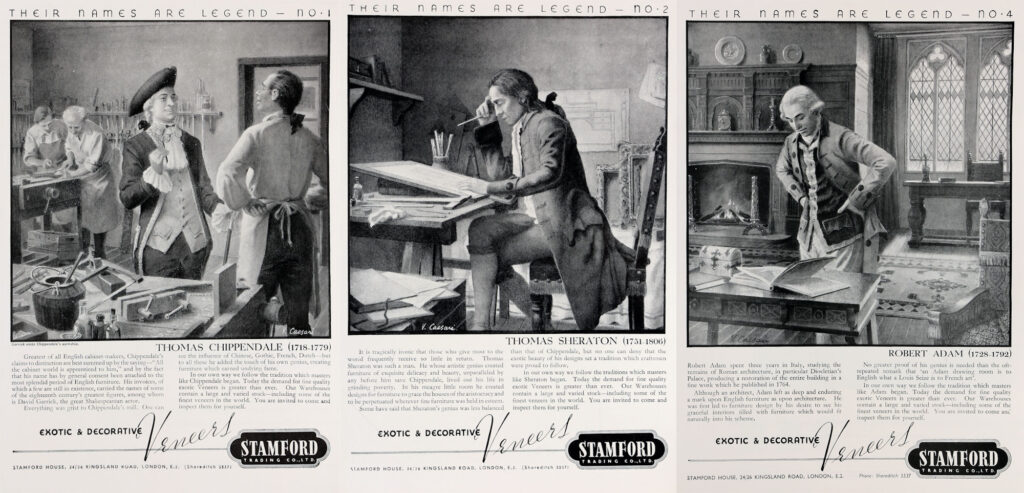
Waygoods, South Norwood
Broken glass isn’t usually associated with the loss/decline of ghost signs, but this is precisely what has been happening to the Waygoods sign on Chatsworth Way, SE27, as previously documented here.
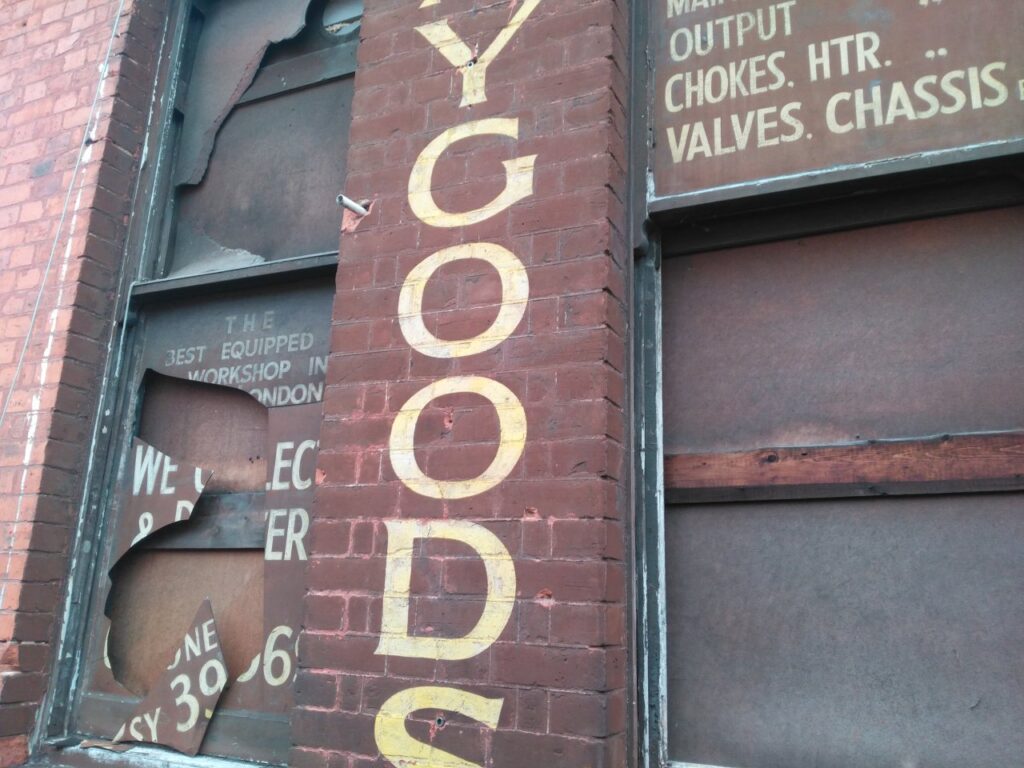
The latest lost pane leaves only one surviving (top right) on this unusual specimen in the London ghost signs landscape. So not yet a RIP, but fast heading in that direction. The sign’s story is told on this blog post, which included a cameo made by the shop in a 1946 film.
Lidstone’s, South Woodford
And, finally, a curious sequence of events in east London that took place at the end of 2023. They centred on the Lidstone Ltd butchers ghost sign on Daisy Road, E18, and our entry in the book reads as follows:
“Many branches of the Lidstone chain of butchers were listed on this sign. Lidstone was active for at least the first three decades of the twentieth century, and was here in the 1910s. Another Lidstone ghost sign exists on Thurloe Place Mews SW7 (see our online map for details).”
Ghost Signs: A London Story, page 126
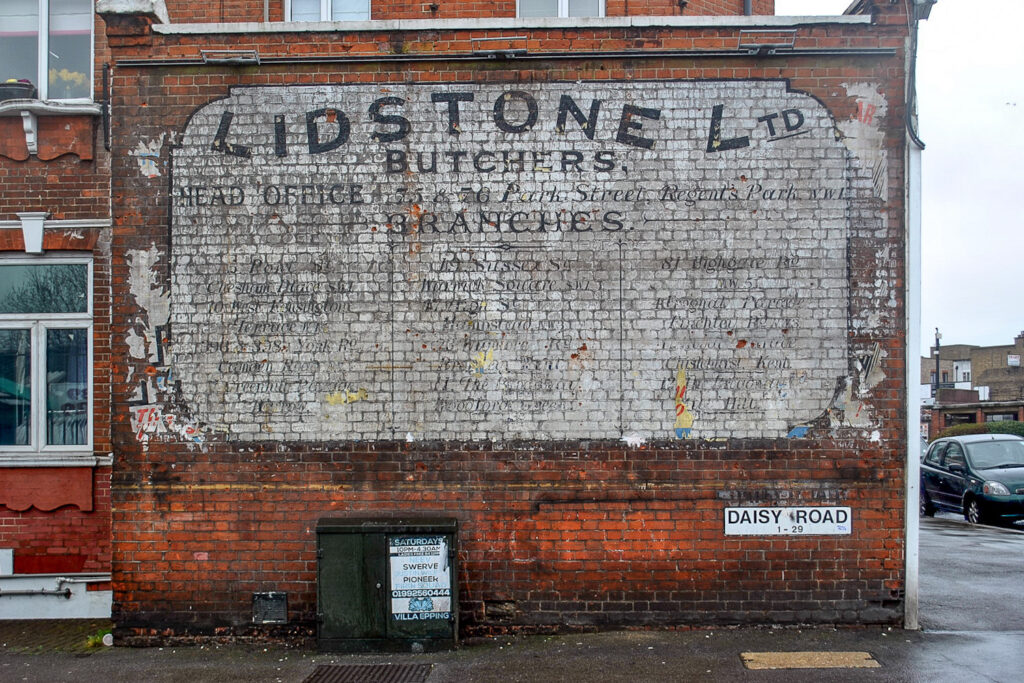
Jane’s London has written a longer account of the firm’s history.
Wipeout
It all started under cover of darkness, when workers employed by the Fresh As A Daisy Café painted over the wall. The aim was to cover the graffiti that had started to accumulate towards the bottom of the sign and the empty wall below it.
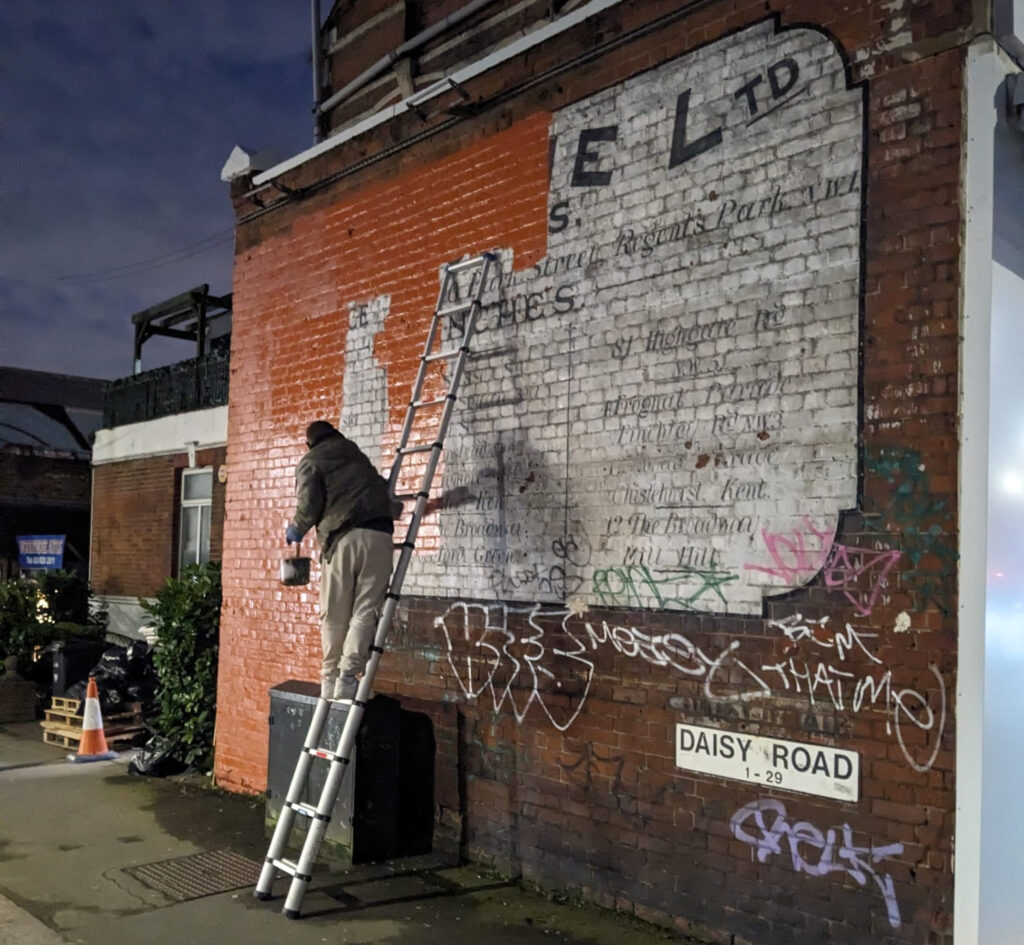
Backlash
Described by one local resident as “pure vandalism”, the incident provoked a flurry of activity on social media, and letters to the council, which felt obliged to respond with a formal statement.
Conscious of the backlash, which included threats to boycott the cafe, owner Bledar Islami brought experts in to see if the new paint could be stripped back to reveal the sign once again. There is precedent for this type of solution, as documented here in Islington, but the consensus was that it wouldn’t work in this case.
‘Resurrection’
There was only one thing for it: commission a repainting of the lost sign. Following this, Islami also issued a statement to the press.
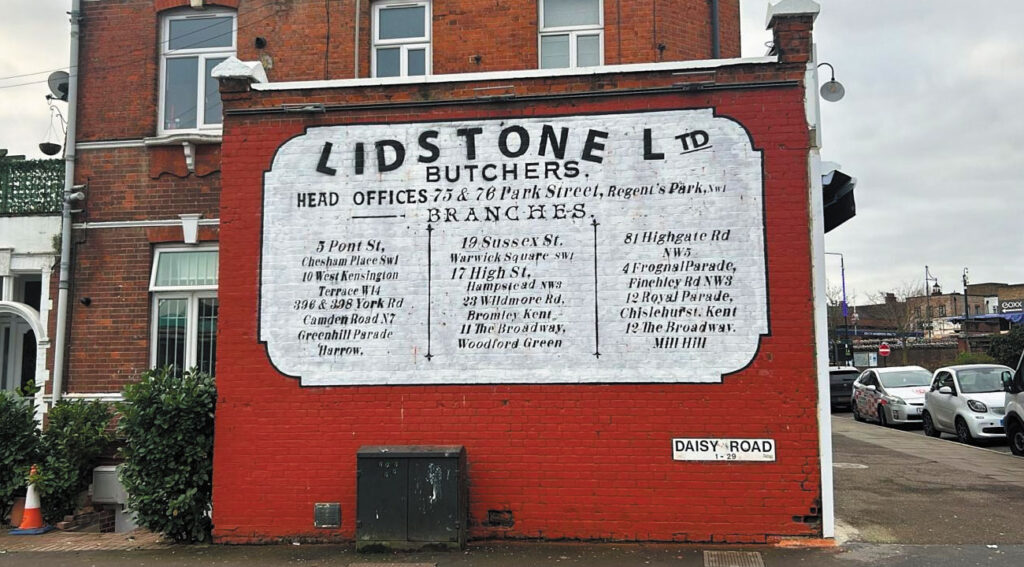
I haven’t been able to find out who did the work, nor what process they followed, but the analysis below by Roy Reed shows the extent to which this new iteration deviates from the original.
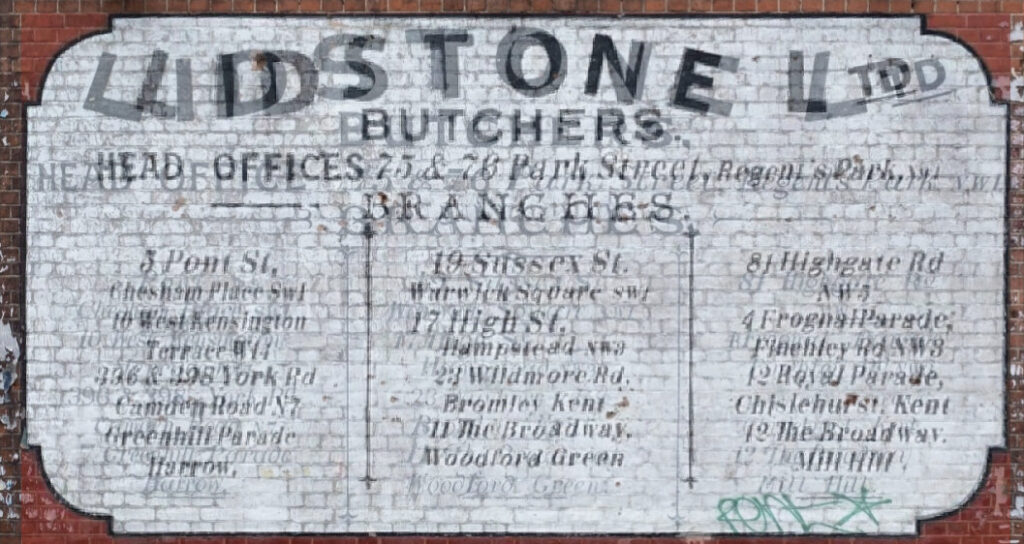
It’s a most curious story, and a powerful case study in the value attached to ghost signs by their public. When we come to update the book for its second edition, the entry for this sign will have to be amended to account for the events of December 2023.


